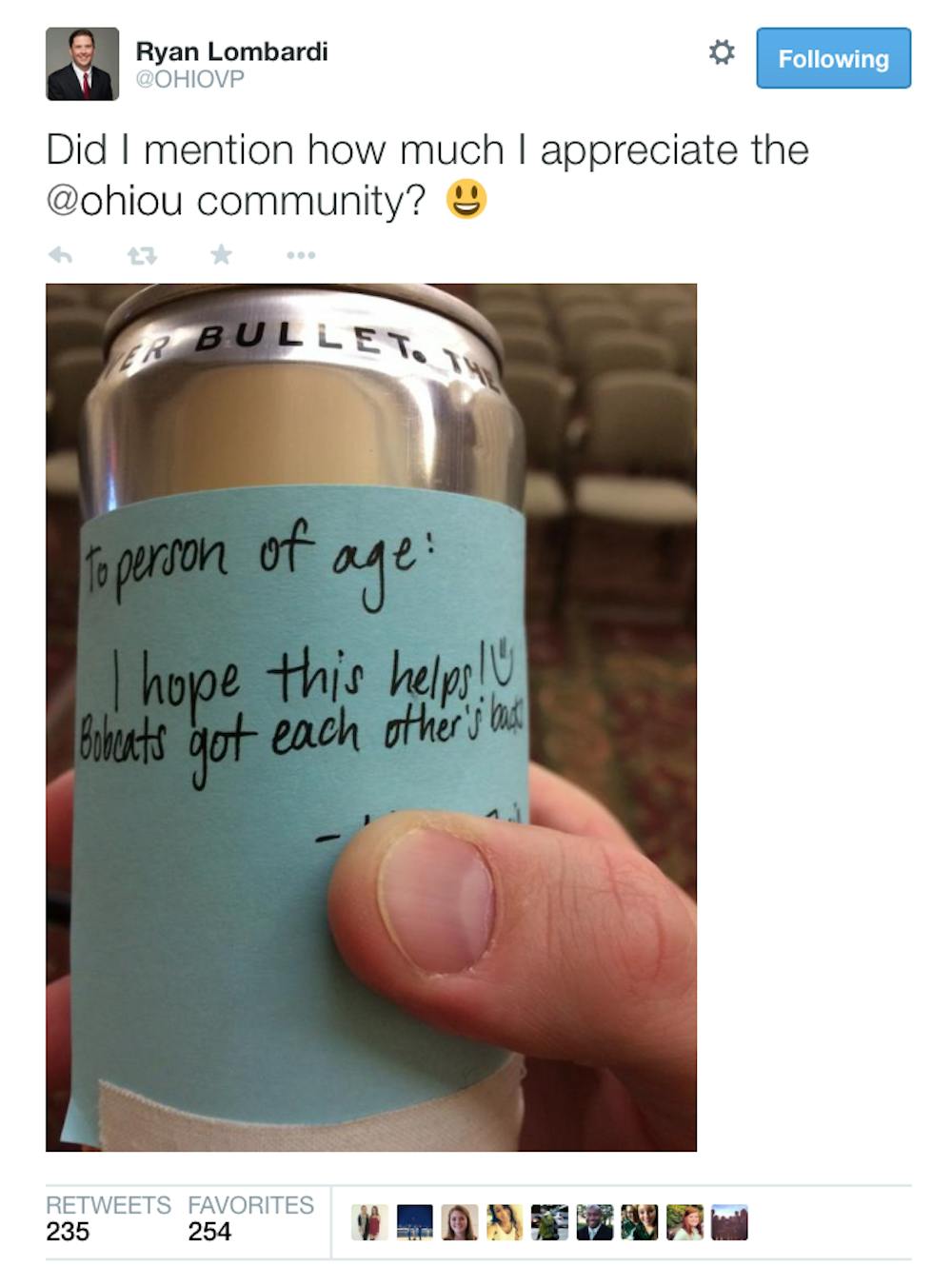University officials, OU accounts tweet out information in midst of Union Street fire.
When Brooke Remington woke up Sunday morning at home in Columbus, she had no idea that around the corner from where some of her friends live on Court Street, five buildings were ablaze on Union Street in Athens — until she looked at Twitter.
Remington, a senior studying psychology pre-physical therapy, had several text messages within a group message from friends checking in on their comrades to make sure everyone was okay.
She said a key way she learned what was happening came via Twitter, including @OUScanner and The Post. “That’s how I figured out what was going on.”
Remington said she wanted to donate items to those affected but would not be back in town in time to donate in person. Then, she thought to tweet at Vice President for Student Affairs Ryan Lombardi.
“I had seen him already respond to someone else and knew he was answering questions,” Remington said. “Everyone was on Twitter all day (talking about the fire).”
Lombardi said the thousands of people who follow him on Twitter expect his tweets to be facts.
“Whether there’s a tragedy like this or something that affects a lot of people, the rumor mill can start quickly,” Lombardi said. “I was putting out updates and the things we knew … I wish I could say that there’s a science, what to tweet and what not to tweet, but it’s really more of an art form … (You have to gauge) what students are interested in,” he said.
The university communicated with students via email alerts and social media, including the Twitter accounts @ohiou and @OHIOPrezOffice.
“When the university faces an emergency or unexpected incident like yesterday’s fire, social media plays a key role in keeping our students, staff, faculty and surrounding communities informed,” said Stephanie Filson, an OU spokeswoman, in a statement. “In the case of the West Union Street fire, Ohio University worked closely with the city of Athens to align regularly distributed messages in an effort to maintain safety on site and offer support to those who needed it.”
Dean of Students Jenny Hall-Jones has thousands of Twitter followers and was one of the administrators who used social media to contact students and keep them informed during the fire. Early on however, she was busy working offline to ensure those who were displaced were taken care of.
“I don’t think I started tweeting out thank-yous until much later,” Hall-Jones said. “When I got home, I got on Yik Yak and Unseen for the first time. OU Confessions, Yik Yak, and Unseen all had really positive posts.”
This was surprising to her because of the infamous negative reputations apps have, such as Yik Yak and Unseen.
“From a social media perspective, those (apps) have been kind of notorious for bad things,” Hall-Jones said.
Hall-Jones said it is important to keep people tuned into what’s happening on campus. “People have this innate need to know what’s going on and how they can help,” she said. “We can get the word out in such good ways … so quickly … we can kind of infiltrate what people are talking about.”
Several accounts unofficially affiliated with the university also took a part in keeping people informed about the fire.
“I had some people hit me up on Twitter asking what they could do to help,” said Zac Sebo, creator and operator of @ThatsSoAthens. “Some of the people were asking me where (they could donate), so I reposted their tweets with an answer,” he said.
Those answers were plucked from Lombardi’s Twitter account, Sebo said.
Sebo’s brother, David, is the assistant design editor at The Post.
“When it comes to social media and news … they go hand in hand,” Sebo said.
The operator of @OU_Confessions said, “I looked at my phone as soon as I woke up and saw a bunch of people tweeting about it already and I started retweeting Jenny Hall-Jones and Ryan Lombardi.”
She said she believes her account in particular is important because a lot of followers are not only students, but alumni and others with an interest in the university.
“I thought it would be good to spread the word about where you could go to donate,” she said. “Twitter is our news source as college students.”






